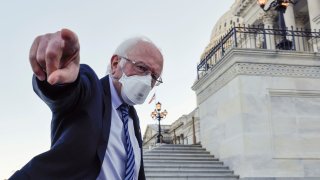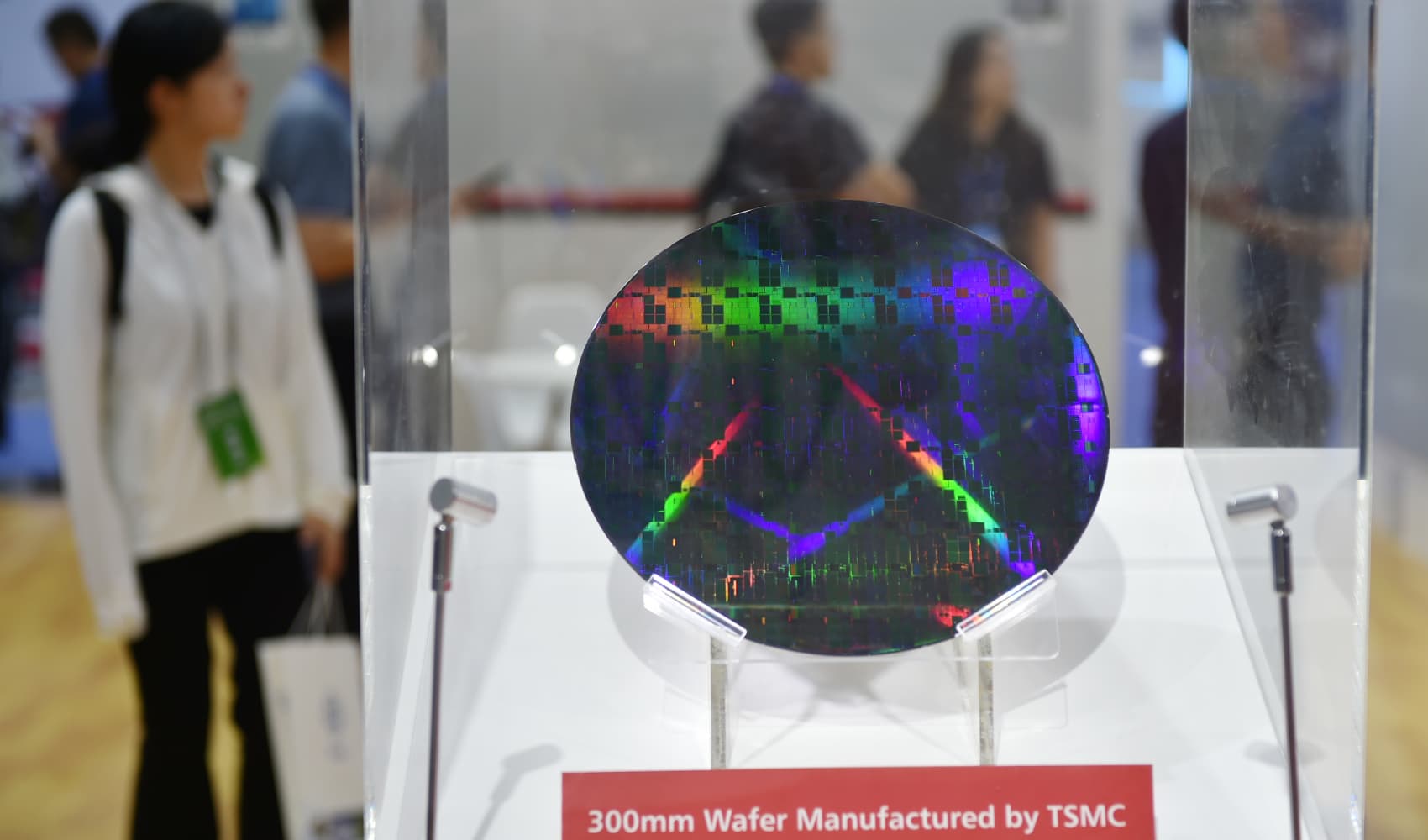
Jeff Bezos wants a moon landing, Elon Musk is planning a mission to Mars and Sen. Bernie Sanders, I-Vt., doesn't appear to be impressed by any of it.
On Wednesday, at a meeting of the U.S. Senate Committee on Budget, Sanders raised an issue that's been a regular part of his political platform for many years: wealth distribution. "Anyone who thinks we do not have an oligarchy right here in America is sorely mistaken," he said. "Today in America, multibillionaires like Elon Musk, Jeff Bezos, Richard Branson are off taking joy rides on their rocket ships to outer space."
Sanders appeared to be citing the three billionaires' spaceflight companies: SpaceX, Blue Origin and Virgin Galactic, respectively. All three U.S.-based businesses have played a large part in redefining — and even reviving — national conversations around modern space exploration.
Musk, Bezos and Branson have each poured large sums of their own money into those companies: Bezos, for example, spends $1 billion of his own Amazon stock per year on Blue Origin. But while his brief trip to space in a Blue Origin rocket last July could be deemed a "joy ride," it's doubtful that he'd call his spending frivolous.
Feeling out of the loop? We'll catch you up on the Chicago news you need to know. Sign up for the weekly Chicago Catch-Up newsletter here.
Rather, Blue Origin's mission statement defines the company's goals as essential to humanity's future survival, emphasizing that "in order to preserve Earth, our home, for our grandchildren's grandchildren, we must go to space to tap its unlimited resources and energy."
Musk, SpaceX's founder and CEO, similarly told Time magazine in December that his "goal overall has been to make life multi-planetary and enable humanity to become a spacefaring civilization," thus preserving the planet. In October, SpaceX was valued at $100.3 billion following a secondary share sale.
To Sanders, those plans are more displays of opulence than humanity-enriching endeavors, especially considering "over half of the people in this country are living paycheck to paycheck," he said.
Money Report
"In our country, the two wealthiest people now own more wealth than the bottom 42% of our population," Sanders added, referencing reports that Bezos and Musk own more wealth than a combined 130 million Americans. Data from Federal Reserve System seems to confirm Sanders' estimates: In 2021's fourth quarter, the top 1% of Americans owned 32.3% of the nation's wealth, while the bottom 50% owned 2.6%.
The pandemic only broadened that wealth gap. Musk, whose net worth is $286 billion as of March 31, gained $121 billion in 2021, according to charity organization Oxfam. The organization estimated that the 10 richest people in the world added more than $400 billion to their fortunes last year.
In 2020, Sanders co-sponsored the Make Billionaires Pay Act, which proposed that individuals with more than $1 billion in net assets pay higher taxes to cover the costs and services for public and private health insurance for uninsured individuals for one year, including prescription drugs and care related to Covid-19.
The bill was introduced to the Senate in August 2020, but no further action was taken.
Unsurprisingly, Sanders has also spoken out against private space companies obtaining government funding. Congress is currently considering sending $10 billion to NASA, which would funnel those funds to a private company in a high-value contract for moon landers. On Wednesday, Sanders tweeted his strong opposition to the provision, arguing that companies like Blue Origin and SpaceX don't need the cash.
"To my mind, if you're worth $180 BILLION, if you've got mansions and a superyacht, if your hobby is trying to go to the moon or Mars or wherever, you're doing pretty well for yourself," Sanders wrote. "No, Mr. Bezos, you don't need $10 billion in corporate welfare to subsidize your space travel."
Musk, Bezos and Branson did not immediately respond to CNBC Make It's request for comment.
Sign up now: Get smarter about your money and career with our weekly newsletter
Don't miss:






